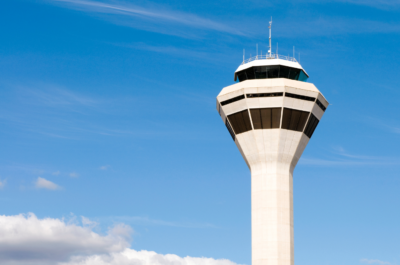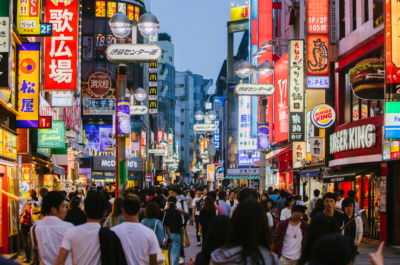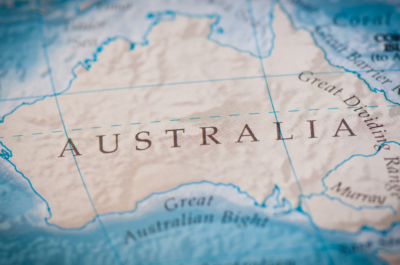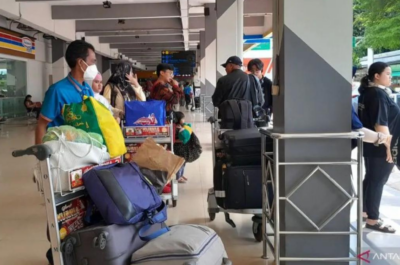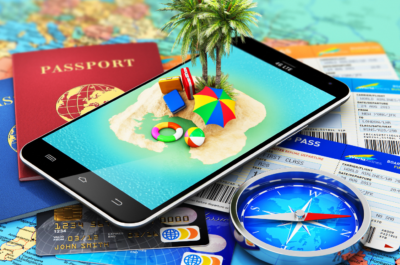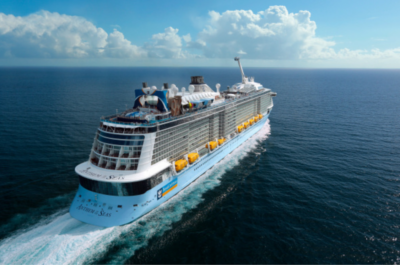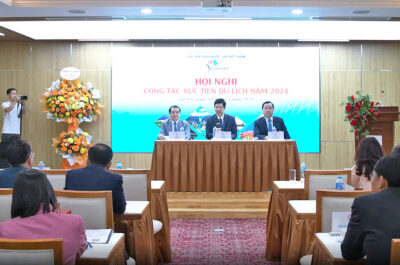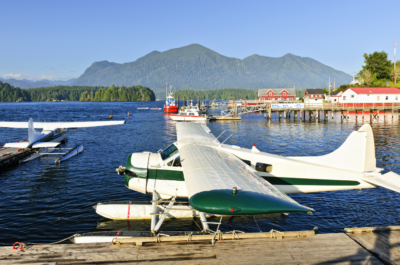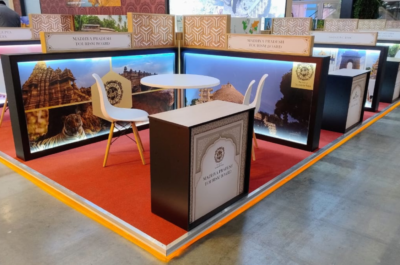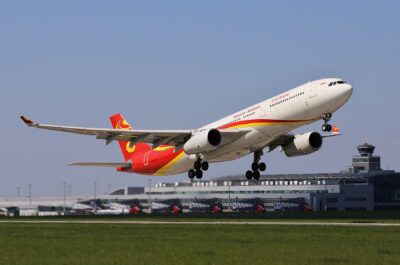A new survey of 1,400 business travelers across the world reveals that, despite the global economic slump, the vast majority expect to…
A new survey of 1,400 business travelers across the world reveals that, despite the global economic slump, the vast majority expect to maintain or increase their current business travel levels over the next year. The new
- Despite continued economic slowdown, 91% of travelers expect to maintain or increase the pace of travel next year; Only 9% see drop
- A year after September 11th terror attacks, 88% feel safe flying
- Yet many say airline service has declined
- Global survey of corporate travelers reveals technology plays important role in staying productive on the road
True road warriors, those who travel across the globe, apparently are not slowing down, said Mark Webb, Senior Vice President, American Express Global Business Partnership, the group that services the company’s largest corporate customers. They have issues with service on the road, but technology tools have helped them become much more productive.
In the survey, frequent corporate travelers who had taken at least one international trip were polled via telephone in August 2002 on a variety of their business travel practices and habits. Respondents were from 14 countries in four global regions, Europe, North America, Latin America and Asia/Australia. On average, the respondents took 8.5 trips within the past year. (Please see below for more survey methodology.)
More Trips Ahead, Say Many Travelers
The American Express survey revealed that 91% of respondents expect to either maintain or increase their business travel schedules during 2003. Specifically, more than one-third (35%) see the number of trips increasing slightly or significantly, while 56% plan to maintain their current level of trips into next year. Only 9% expect their international travel to decrease.
More than half of Latin American business travelers (51%) are confident that their travel will increase, followed by 39% of North Americans, 33% of Asian/Australian respondents and 29% of Europeans.
On the other hand, 11% of Europeans foresee some level of decline in their business travel. In both Asia/Australia and Latin America, 8% see a drop, followed by 6% from North America.
The new American Express survey also reveals that most business travelers around the world feel safe while traveling.
A clear majority, 88%, said they feel very or fairly comfortable about their safety and security when flying. But 12% are not very or not at all comfortable.
In North America, nearly all respondents (97%) said they felt safe to some degree. Europe followed closely, with 95% of those polled responding this way.
Experienced travelers have seen stepped-up and stricter security measures for air travel, said Webb. And, to boost the confidence of employees who don’t feel safe, travel managers are giving out more advisory information on security and services, for example, making sure they know how to access help when out of the country.
Eighty-nine percent of Latin American respondents reported feeling very or fairly secure in flight, while 79% of Asian and Australian business travelers felt secure. In addition, in the survey, 62% of respondents noted that they consider having 24-hour travel support and services anywhere they travel very or quite important. A majority of respondents in each global region, with the exception of Europe, consider emergency travel services important – with Latin Americans (73%) more in favor of it than others.
Level of Service Declines, Say Some Travelers
Not surprisingly, many international travelers have high standards in what they expect from suppliers.
In the survey, 45% feel that airline in-flight service has remained the same from two years ago. But nearly one-third (29%) of the world’s travelers find that the in-flight experience has diminished over that time frame.
Meanwhile, 24% said service has improved, and 2% weren’t sure.
A look at results within each global region shows that in both Australia/Asia and Europe, most polled said service has remained the same from two years ago. But a majority of respondents from North America, 55%, and the largest proportion from Latin America, 46%, have seen a noticeable decline in service. Additionally, over one-third (37%) of European respondents think it’s grown worse.
Among those who saw an improvement in cabin service, the largest proportion (37%) was from Australia/Asia.
While a considerable number were troubled by airline service, only a tiny proportion of respondents felt the same about the standard of hotel accommodations. Just 4% said accommodations have worsened over two years, with 35% noting they’ve improved and 60% saying they’ve stayed the same. One percent were unsure.
A majority in all regions said the standard of hotel accommodations have stayed the same, while 43% of travelers from Asia/Australia and 40% from Latin America noted an improvement from two years ago, compared to 27% from North America and 24% from Europe.
Staying Productive A Problem, But Technology Helps
By far, the biggest issues international travelers have relate to the loss of productivity while on the road. However, portable technology, such as laptops and cell phones help many stay on top of their workload.
In the survey, 54% of travelers feel that travel delays are the worst aspect of business travel. In the next largest response, just over 16% said falling behind in office work was their biggest gripe. Those from the Asia/Australia region (57%) were most likely to gripe about travel delays, while being away from their offices bothered North Americans the most, 22% of whom cited this inconvenience.
Meanwhile, more than 11% cited airline service as the worst aspect of business travel, and another 10% felt that jet lag was the greatest hardship. The smallest proportion of those polled, over 8%, said a poor accommodation was the most unpleasant factor when traveling.
Among all others, Latin Americans are most apt to complain about airline seating and service (16%), as well as jet lag (15%).
For many business travelers, technology is helping boost productivity while on the road.
The practice of going online or checking emails while away from the office is popular among business travelers. Overall, 71% access the Web or check email daily, while 16% never do and 13% do less than three times per week.
Among those who do check, most monitor from one to two times daily, while about 20% are the most conscientious – checking emails three times or more every day.
Regionally, among all respondents, Latin Americans, followed by North Americans and Asians and Australians check email most frequently each day, according to the survey. On the other end of the spectrum, Europeans are most likely to ignore waiting emails, as 22% said they never check.
Separately, in another question, access to email while on a trip was considered very or quite important by 75% of travelers. Conversely, 25% said electronic communication was not very or not at all important.
In another perspective on the value of technology for business travel, when asked which single amenity travelers would keep while in flight, 31% said a laptop. Only on-board entertainment, cited by 38% polled, was more popular. Another 20% chose on-board email or Internet access, while 7% picked a telephone. Four percent were unsure.
Most North American business travelers (42%) can’t do without a laptop in flight, while Europeans are about split in their regard for laptops (32%) and in-flight entertainment (31%). Most of those from Latin America and Asia/Australia also favor in-flight entertainment.
The survey also shows that the vast majority of travelers consider cellular phones a premier on-the-road communication tool. Asked how key it is to have access to mobile phones while traveling, 81% said very or quite important. Only 19% said not very or not at all important.
Although a majority of respondents in each region value mobile phones, they won praise mostly from Asian/Australians and Europeans, with 87% and 86%, respectively, citing their importance.
Not all technology is fully embraced by international business travelers, however.
There is a significant split in attitudes among world travelers about the usefulness of voicemail on the road. A majority (54%) said access to voicemail while traveling was not very or not at all important, versus 44% who said it was very or quite important. Two percent were unsure.
In a big lead over others, 72% of North Americans said access to voicemail was important on some level, while 70% of Latin Americans are of the opposite opinion.
About the American Express Survey
The American Express International Business Traveler Survey was conducted by The Practice, an independent market research firm based in London. In the survey, 1,400 business travelers representing Australia, Brazil, Canada, China, France, Germany, Hong Kong, Japan, Mexico, Singapore, Sweden, Taiwan, the UK, and the USA were interviewed via telephone in August 2002.
In the survey, 100 business travelers from each country participated.
To qualify, interviewees must have completed at least one business trip outside their home country over the previous 12 months. On average, these travelers took about 8.5 business trips last year.
Theodore is the Co-Founder and Managing Editor of TravelDailyNews Media Network; his responsibilities include business development and planning for TravelDailyNews long-term opportunities.

































